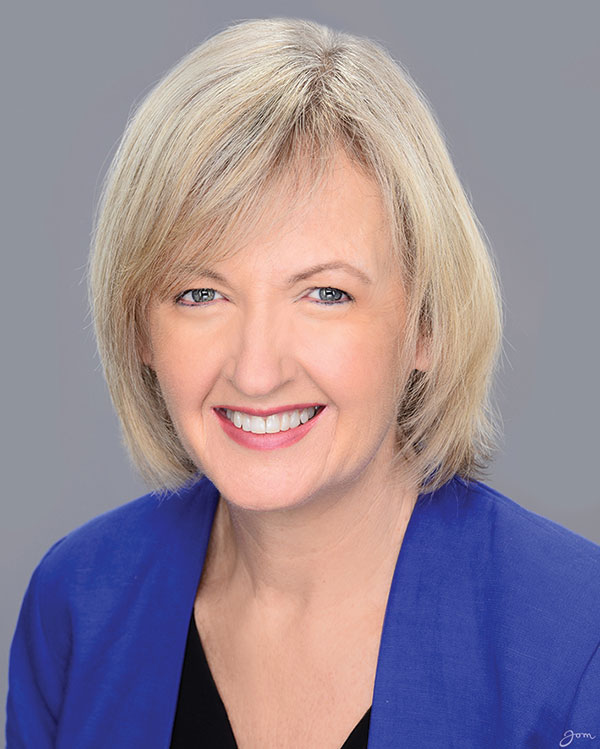Early days
It could be said that Owen was destined to become a not-for-profit (NFP) leader. Her parents helped set up Lifeline in Australia and Owen remembers that on any given morning she could wake up and there would be a family in her living room that had come in overnight escaping domestic violence or other difficult circumstances.
“I saw from a very young age that these people were just like us but that difficult things had happened that meant that they needed support from other people,” says Owen.
The apple didn’t fall very far from the tree for this love child of the NFP sector. Owen’s early roles included working in drug and alcohol education and for children’s relief and development organisation Save the Children. She later went on to set up CREATE Foundation out of her garage, which was the first peak body in Australia to represent children and young people in state and foster care.
In addition to being involved at a grassroots level, Owen became involved in the policy side of things very early on. By the age of 23 she was Chair of the Youth Affairs Council of Australia and the Chair of the National Youth Council of Australia.
Fostering systemic change
These early roles shaped Owen’s leadership style and goals today, which place a huge emphasis on striving for and driving systemic change as opposed to taking a one-on-one approach.
“If there’s one thing I could say about how you have a journey in this kind of sector I think it’s this idea of doing work on the ground at the same time as stepping up to positions that focus on sector improvement and development.
“If you want to change a system you have to get involved in lobbying and advocacy, and work in collaboration with others. One skill set that every emerging leader should be developing is the capacity to build smart and effective collaborations around issues, causes and ideas.
“Some of the best work we did at CREATE was getting all the state governments together and many of the care providers and creating whole new forums and discussions about the way we could do things differently.”
According to Owen, some of the key pressure points within the collaboration space include coming to an agreement around a common outcome or goal, investing the appropriate resources to support the collaboration, and identifying reasons and times when you wouldn’t collaborate.
“Collaborations gets tricky when there are too many agendas at play. Building partnerships involves having a common goal, articulating it, creating a path and knowing when you’ve achieved it.
“There will be different collaborations and different partnerships at different stages in the journey and it’s important to know how to allow people to elegantly and graciously opt out along the way.”
Advice for emerging leaders
In addition to building partnerships and collaborations to achieve common goals, Owen advises tomorrow’s NFP leaders to get past the false sense of competitiveness that exists within the sector today and to start sharing their experiences and getting involved in mentor programs.
“I think we should be much more transparent about the things that we’ve failed at and the things that have not turned out the way we want them to. Scar tissue is a brilliant and wonderful thing.
“The ability to blog and tweet gives us many ways of describing to others what we’re doing, how we’re doing it and the results we’re getting; you don’t need to wait for the annual report or the annual evaluation of your program to tell people what’s going on.”
According to Owen, the only way to build the talent and capacity of the NFP sector is to step up and be part of driving change in Australia.
“The rule of thumb is you should be mentoring and being mentored. I’ve always had both. I have a whole heap of young people who are my social media and technology mentors, and I mentor people on career progression and life changes.
“A good mentor should be a good listener and a good mirror. More often than not, I think that we all know the answer and what our direction is, but having somebody who can help you articulate this is a powerful part of the process.”
Above all, Owen says all emerging leaders should commit to creating a ‘centre of excellence’ within their organisation where the best innovative work and teamwork takes place.
“Excellence is something that is worthy of consideration and, more than that, is worthy of pursuit. There have been as many failures as successes in this sector; good enough is not actually good enough.
“Think about what you need to be doing to build the best in terms of team development, collaboration, design work, reporting, and budget management; strive to create excellence within every individual component of your organisation.
“We have an enormous responsibility to continue to learn, grow and develop, and to not be captured by the past and our own ideas.”
- Sarah Hardinghttps://thirdsector.com.au/author/sarah-harding/
- Sarah Hardinghttps://thirdsector.com.au/author/sarah-harding/
- Sarah Hardinghttps://thirdsector.com.au/author/sarah-harding/
- Sarah Hardinghttps://thirdsector.com.au/author/sarah-harding/











